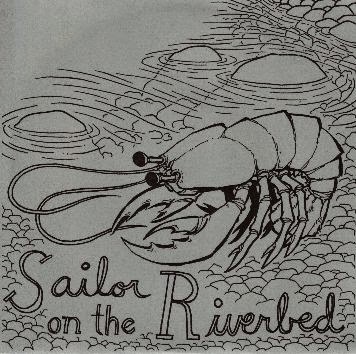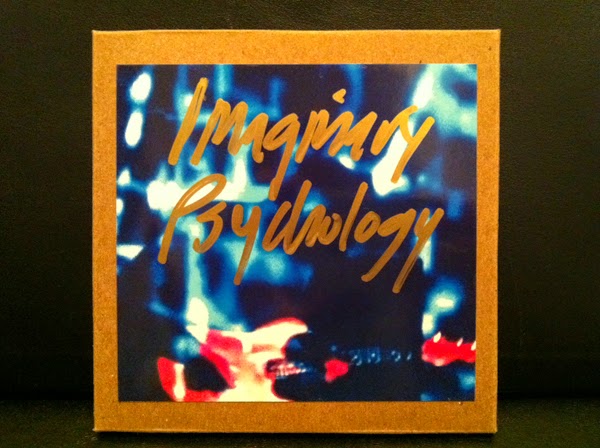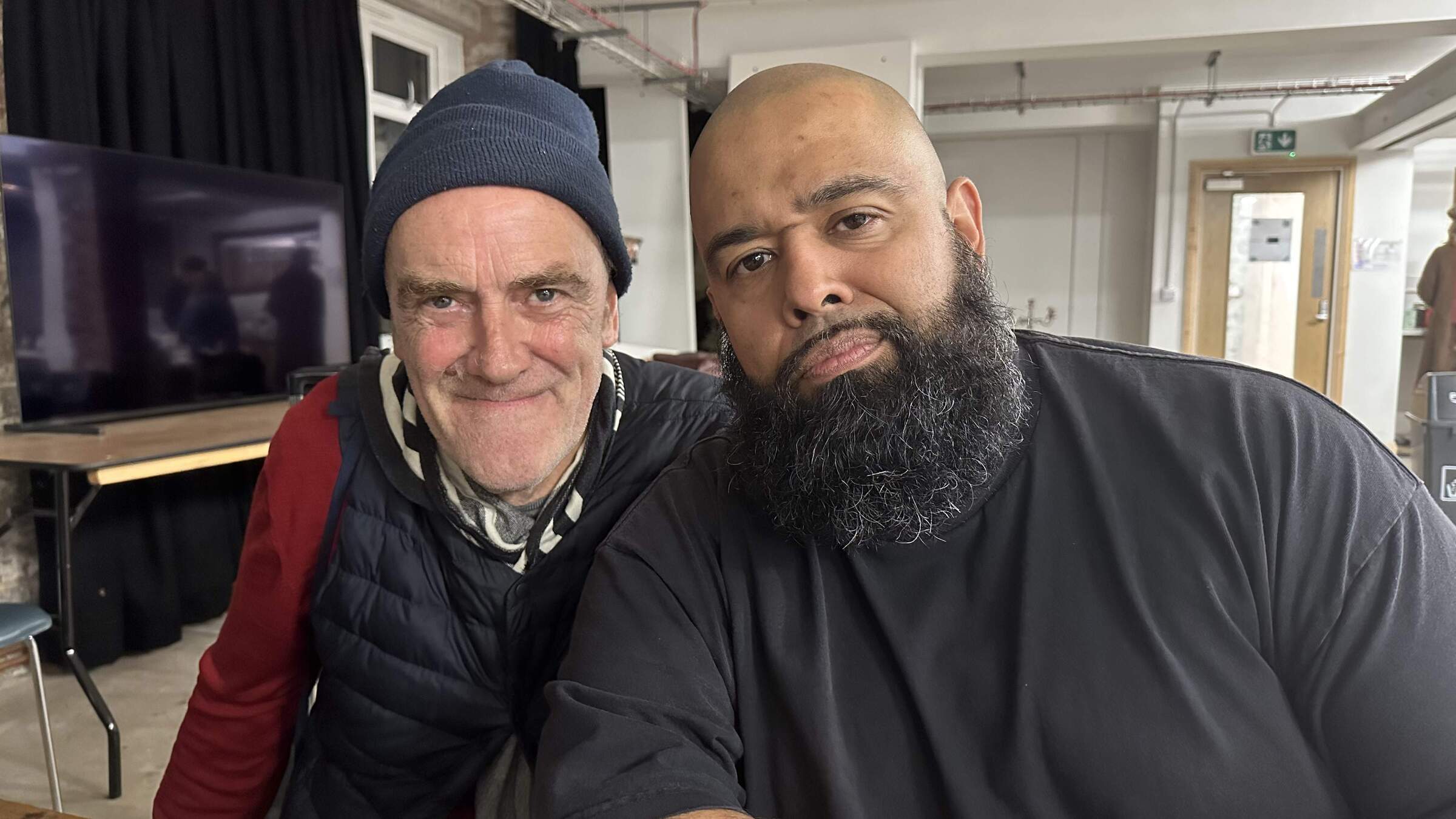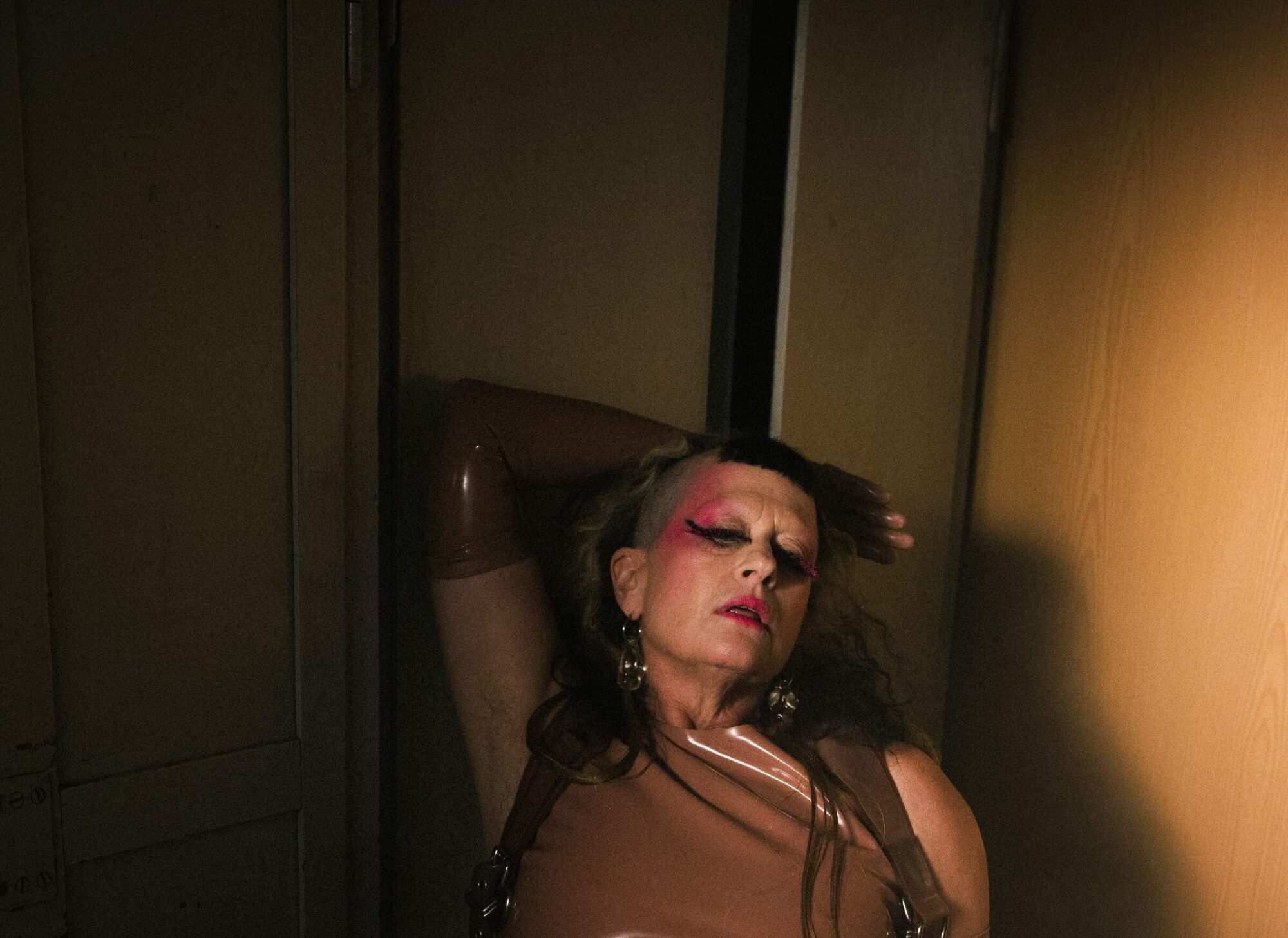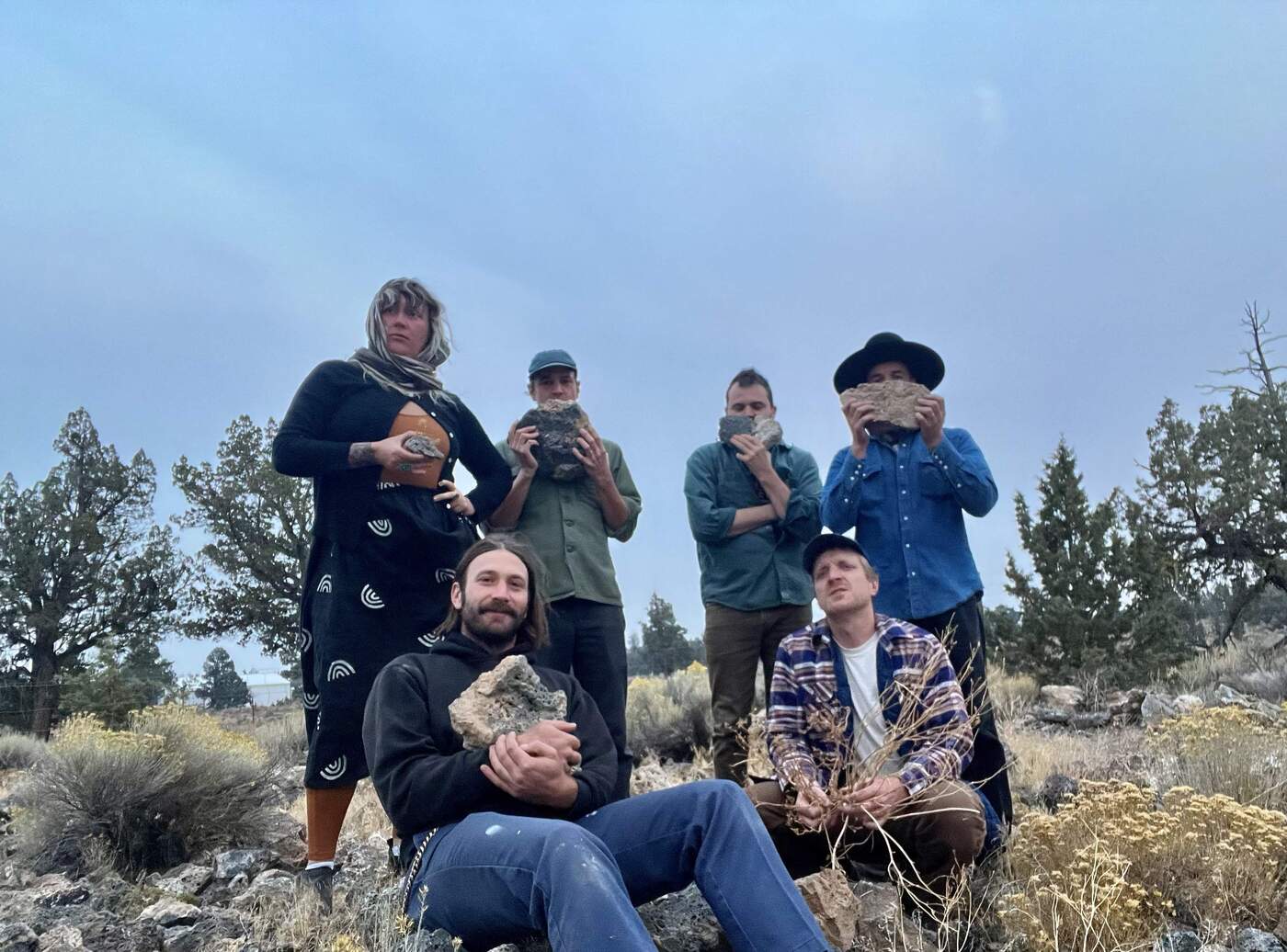Interview with Matt Baldwin
There are so many aspects and facets to Matt Baldwin’s music
that some people might find it a bit hard to describe what he sounds like, and
that would be a difficult thing to achieve in theory. His albums span several genres and at times
even seem to bend and defy them. From
delightfully crafted folk-ish dirges in the key of John Fahey or Robbie Krieger
had he been left to his own devices with an acoustic guitar, to the electronic
soundscapes of organ and hazy electric guitar that make up some of his other
solo work, Baldwin seems to be extremely busy pushing the boundaries of what he
does as a musician and challenging himself at every opportunity to fascinating
results. Not content to be confined in
the sense of being a solo artist, Baldwin has been involved in a long standing
collaboration with Nico Georis and they released their first album, Year Of The
Dog in 2012 which presents yet another angle of Baldwin. This time, a look at the more improvisational
aspects of Baldwin, and more so than much of his other work, bears the mark of
a man who has listened to a lot of The Doors and dissected the sound with a
keen mind and a sharp scalpel. While he
might not get as loud and raucous as they did, there’s an edge to his music, a
madness that seems to be lurking just outside of the door; a wave threatening
to crash above you, crushing you underneath the sheer power of it all. It’s this insanely channeled energy that
manifests itself in the basis of a song, sinks it’s hooks into you and refuses
to let go until the albums finished.
Matt Baldwin’s music has been providing listeners with transcendent
listening experiences since 2004 and after ten years it’s high time a lot more
people heard of the guy! And in that
spirit, I give to you – my local Psychedelic Baby readers, an infinitely looped
moment of transcendent glory that threatens to engulf you; I give you, Matt
Baldwin.
have kind of a rotating collaborative process with a lot of people and I know
you’ve been involved with a lot of stuff over the years. Can you tell us who some of your most
frequent collaborators are as far as working on your solo stuff and who
performs that material with you on the album and live? Or do you have any kind of live troupe
already figured out?
a very short-lived live stage show with Kephera Moon, who I heard is now
playing with members of Hawkwind and maybe Brainticket. With me, she was playing a huge, chopped
hammond organ and Sam Flax played drums for a couple of shows. That was around 2008, and at that time we
were mostly performing material off of Paths Of Ignition. My solo stuff is mostly just that, solo. Kephera plays organ on side-A of Night In The
Triangle and Sam Flax plays a little guitar on a cover I did of Ornette
Coleman’s “Sadness”. Mostly, I prefer to
be alone with the guitar and the machines, which is how I came up as a
musician. A lot of my childhood was
spent alone in a room with a guitar.
extremely involved in music and you usually have several things going on at one
time. What are you currently involved
with right now? Who all have you
released music with in the past?
Pajamas label a few months ago and I have two new records coming out as
well. The first is called Wild Boy,
which Sam Flax recorded a few years ago, and that’s coming out on vinyl
only. The second project is two
half-hour long pieces for guitar and synthesizer called Golden Twins; that’s
coming out on a Belgian cassette label called Sloow Tapes. Both of these are due in the next few
months. I’m also mixing a new project
with Nico Georis that’s more of a minimalist funk thing and I have a bunch of
sketches for my next solo record.
originally from?
Grove. I grew up near the beach.
music scene like where you grew up? Did
you see many shows? Did the local scene
play a large role in shaping your musical tastes or the way that you play and
or perform today?
like Dura Delinquent and Low Sperm Count who were very exciting and
transgressive. I was around twelve years
old and those were some of the most intense musical experiences of my life.
household? Were your parents or any of
your relatives musicians or extremely involved or interested in music when you
were growing up?
Suzuki method, which is a way of learning by ear. I also sang in the church choir. My dad’s side of the family loved ballads by
Ben Webster and Sinatra.
first real exposure to music?
sister listened to, “Love Come Down” and stuff like that.
one defining moment of music, a moment that changed everything for you, opened
your eyes to the infinite possibilities of music and altered your perception,
what would it be?
experience. I was maybe fourteen years
old, up in Pinecrest and a friend of mine’s mother was listening to The Return
Of The Repressed comp and there was this moment of recognition, being out in
the yard and hearing it come through an open door. It was one of those art experiences where
after it’s over, everything about life is different.
decide that you wanted to start writing and performing music and what brought
that decision about?
were musicians and we used to play together.
They were much more precocious than I was and writing all kinds of stuff
right out of the gate. I started playing
guitar at eleven and wrote a bunch of stuff that was mediocre until I was
around twenty one, and then I started writing stuff that I thought was
worthwhile.
first instrument? How and when did you
get it?
creed, code, ideal or mantra that you live or make music by?
It was more of an ego thing in the past.
When I made Paths Of Ignition, I wanted to prove that I was the best
guitarist alive. Now I’m more interested
in exploring the unknown, which doesn’t always have much to do with virtuosity.
located at these days?
music scene like there?
guitar in his band for five years. Matt
Fishbeck of Holy Shit lived around the corner for a couple years and we became
good friends and collaborated some, see the art for Imaginary Psychology, but
he recently moved back to Los Angeles.
involved in the local scene? Do you book
or attend a lot of shows?
a year in Los Angeles.
record and or release any local music?
If so can you tell us briefly about that?
the local scene where you’re at now has played a large role in your musical
history and evolution? I don’t know how
much of your extensive musical activity is based solely on your location and
the contacts that you’ve forged while you’ve been there, or if that kind of
circumvents your surroundings and stuff?
in Pacific Grove was good for that because it’s so provincial and
disconnected. I also lived in Humboldt
for a while and that was a good time for guitar. I was unhappy, but I went deep with the
guitar.
talked a lot about your other music and stuff up to this point, but I’d really
like to concentrate mostly on your solo stuff and the ongoing side-project that
you have with Nico Georis.
He grew up nearby me, but we didn’t meet until a few years ago. He’s conservatory trained and I’m a musically
illiterate punk; Apollo and Dionysus, that’s a big part of the attraction. He did this amazing festival for a few years
in the absolute middle of nowhere in Big Sur, way up on a mountain overlooking
the sea. They would sell four hundred
tickets and have really interesting lineups each year, The Entrance Band,
members of Fela Kuti’s original band, lasos.
It’s the kind of musical experience that everyone is looking for at
Coachella.
who some of your major musical influences are?
Do you have any particular influences that you think you bring to your
projects apart from those that you’ve already mentioned?
Martyn, Leigh Stephens, Eddie Hazel, Roedelius, Sonny Sharrock, Jon Hassell,
Terry Riley, Paul Dresher, Neu, Michael Karoli, Charlie Mingus, Ashra, Chrome,
Conrad Schnitzler, Vini Reilly, La Monte Young, Iggy, Steve Roach, Takehisa
Kosugi and Suicide.
process like for your solo stuff? Do you
usually start with a certain part or just have a general idea of a song in your
head and figure out how to get there from start to finish on a song by song
basis?
happen. Sometimes just one part comes
through and I have to stitch it together with others to make a song. Other times a whole song just leaps into
being and that’s really the best way for it to happen. That’s what happened with “Lindsay And Her
Duplicates” for example. It just came in
a big rush.
recording? You’ve released a good amount
of stuff on your own as well as your continuing collaboration with Nico Georis
and countless others, so I assume it doesn’t bother you too awfully much. As a musician myself, I think that most of us
can really appreciate the end result.
There’s not a whole lot that beats holding an album in your hands
knowing that it’s yours and no one can ever take that fact away from you. Getting to that point though, actually
getting stuff sounding the way that you want it can prove to be a little
challenging to say the least. What’s it
like recording for you?
engineer because I’m not much of a technician and I like to focus on
performing. When I record on my own I do
it entirely on cassette. It isn’t hard
to get a good electric guitar sound on a cassette; that’s a secret of mine.
your own recording on your own time and turf with your own equipment or do you
prefer to turn the reigns over to someone and head into a studio to record?
a home recording setup. It keeps things
fresh.
preparation that goes into your recording sessions where you spend a lot of
time and effort getting arrangements nailed down and sounding just the way you
want them? Or do you go into things with
a rough framework that has some room to evolve and change during the recording
process?
planning and rehearsing. Recording at
home I’m less deliberate and into playing with chaos.
released the Sailor On The Riverbed split 7” on Sailor On The Riverbed Records,
can you share some of your memories of recording those tracks? Where and when was that material
recorded? Who recorded it? What kind of equipment was used? Was that a fun, pleasurable experience for
you all?
reel quarter-inch machine, the same studio that Sam still uses. He recorded most of Age Waves there. It was quick and fun, the first time I ever
put anything to tape for release and the first time I ever had a song on vinyl.
was the split with Sean Smith and Adam Snider, Berkley Guitar on Tompkins
Square Records. There were five new solo
tracks that appeared on Berkley Guitar, when were those tracks recorded? Who recorded them and where was that? What kind of equipment was used? Do you enjoy split releases? You’ve done several of them over the years.
recorded those at Fantasy Studios in Berkeley; really nice high end gear. I have unpleasant memories of that session
though. It was toward the end of my
association with Sean and things were getting bad between us. That’s all over now. I’m still very close with Adam though. I call him my greatest discovery. I discovered him while were studying at
Berkeley.
were back at work two years later in 2008 when you released Paths of Ignition
on American Dust who later went on to release another of your albums in
2011. Was the recording of the material
for Paths Of Ignition very similar to the recording for your earlier works? If I understand correctly that was your first
solo full-length. Did you approach the
songwriting or recording of the album very differently knowing it was going to
be your first album? Or did you even
know that going into recording? Can you
talk a little bit about the recording of that material? Who recorded that material? When was it recorded? Where was that at? What kind of equipment was used?
recorded in two all-night sessions at Hyde Street Studios in San Francisco in
2007. The rest was done at Sam’s studio
in Berkeley. I had a clear idea about
the orchestrations and overdubs, but I did improvise somewhat and leave certain
elements open to chance, like how the arpeggiating guitars fall out of phase in
“Eulogy And Dark”. That was an
accident. Also adding the Tamboura was a
last minute idea.
rewarded the universe with Imaginary Psychology, a CDr that came out on your
own Psychic Arts label. Three years later Spiritual Pajamas reissued it on
vinyl with a single-sided 7” flexi disc.
Can you share some of your memories of recording that album with us
here? Where was it recorded at? What kind of equipment was used? Who recorded it and when was that? Is that a limited release at all?
time ago. I recorded most of it on a
Tascam 424 in my parents’ living room when they were gone for the day. The backing tracks for “State Trooper” were
recorded at Nico’s studio in San Francisco and the song on the flexi was
recorded, almost accidentally, one evening at Matt Fishbeck’s house in
Oakland. I was taking a walk around the
lake and I stopped by his house, the way I often did in those days. While I was there I started showing him that
I had figured out this Martin Newell song in an open D major tuning and he just
started setting up a mic and said, “Can you do that again?” We recorded it all right then in single
takes. It’s an extremely ambitious vocal
part and I feel good about how I handled it.
This is a perfect example of what I love about Fishbeck. A lot of people pay lip service to
spontaneity in performance, but Fishbeck is truly spontaneous. Like no one else I have ever met. He also played the beautiful Omnichord you
can hear in the background.
schedule you dropped the double 12” album Night In The Triangle in 2011 on
American Dust Records. This happens to
be one of my favorite works I’ve heard from you and I’m particularly curious
about the writing and recording of Night In The Triangle, can you tell us a
little bit about that? Where and when
was it recorded? Who recorded it? What kind of equipment was used?
possible. Type-one cassettes on a Porta
02 machine, although some stuff on disc two was done on a 424. You can hear the difference. I had just gotten Ariel Pink’s Worn Copy and
I took it as a permission slip to not worry about tape hiss. It was recorded in a couple different
apartments in Berkeley and finished in Pacific Grove. A lot of that record was recorded direct to
tape, with a corny tone modeler and no mics.
I think of that record as dark, grainy snapshots of the infinite. Or as Celine said, “the infinite put within
the reach of poodles”. That record has
some of my favorite things that I’ve ever done on it, like “Juvenal Europa”.
since you released Night In The Triangle and I know you usually stay pretty
busy. Do you have anything planned as
far as solo releases go in the works or on the horizon at this point?
Cassette, a new yet-to-be-titled record with Nico that is still being mixed,
and more solo stuff that’s still in utero.
released Year Of The Dog your first collaboration with Nico Georis. Can you talk a little about how your
collaboration with Nico originally came about and when that was? What led to the recording and release of the
material that would comprise the Year Of The Dog album? I know that album was limited to only 50
physical CD-Rs, although that material’s available digitally on your Bandcamp
page. Are there any plans to re-release
the material from Year Of The Dog in a physical format anytime in the future?
out after that. We got together in his
studio and started to improvise and we clicked immediately. Sexual metaphors are the most apt way to describe
our process. I’ll just say that it’s
really good. We have lots more stuff
planned and we’re looking for labels to reissue our first two projects with,
would love to see them on vinyl or cassette.
recording of the Year Of The Dog material like?
Where and when was that? Who
recorded it? What kind of equipment is
used?
with it. He happened to have mics up the
whole time that were recording to a quarter inch tape. Incidentally we were recording over an old
rehearsal tape of The Sandals, the band who did the Endless Summer soundtrack;
Nico’s dad was in that band. Later on
Nico edited it and that was that. The
track called “Juan Carlos” was just us jamming with a bunch of musicians who
were in the mix at that time, a total free improvisation with no edits. All I used for it was a wah pedal thru a Jazz
Chorus amp.
released your second piece with Nico, Dream Stills. Did you handle the recording of the material
for Dream Stills very differently than Year of The Dog? Can you tell us about the recording of the
material for Dream Stills? I know that’s
a digital only release, are there any plans to release that physically at all
in the future?
ground floor of his house in Nicasio, a valley in Marin County. That was a real magical session; totally
improvised. There was a big barn door in
the studio, and we would open it up and play looking out into the cow pastures
and hills beyond.
future have in store as far as your collaborations with Nico go? It’s been a few years since you dropped Dream
Stills, do you all have anything planned as far as future collaborations go?
place for interested fans to keep up with the latest stuff that you’re involved
with like upcoming shows and album releases at?
goals or plans that you’re looking to accomplish in 2014?
another tour in Europe and hopefully make it back to Israel, maybe some shows
in the US outside of California. I’m
also talking to some scientists who work with sound imaging technology about
doing a very far out collaborative multimedia show for a big festival this
summer.
what the first song that you ever played live was or when and where that would
have been?
youth center when I was fourteen.
of time on the road playing or touring?
Do you enjoy life on the road?
What’s it like being on tour for you?
play lots of shows in California, but that’s not touring because it’s mostly
out and back. I went to Europe and the
Middle East for the first time two years ago and that was great. It’s true about being treated better over
there. I also liked traveling by myself,
just me and a guitar catching trains.
do you have planned as far as touring and playing out goes for 2014 so far?
Mm, I’m negotiating a few shows right now but nothing solid.
your personal favorite acts that you’ve had a chance to play with?
Roedelius, Iasos, Blues Control, Beach House, The Silver
Jews, Entrance Band and Lucky Dragons. I
also played at a party for the premier of Werner Herzog’s The Cave of Forgotten
Dreams at the LA Natural History Museum and the Aquarium Room at the California
Academy of Arts and Sciences.
who are you on tour with?
Nico Georis.
funny or interesting stories from live shows or performances that you’d like to
share here with our readers?
Staying at Jack Rose’s house in Philadelphia and getting
blotto. At some point we realized that
we were both huge Doors fans and I remember him emphatically saying that, “only
two good things came out of the 1960s were John Fahey and The Doors!!” Maybe the humor doesn’t carry over, but I
remember laughing like crazy with him about that.
of thought to the visual aspects that represent the band like artwork for
photos, flyers and covers? If so do you
have anyone that you usually turn to in your times of need for those kinds of
things, who is that and how did you originally get hooked up with them?
Most recently Matt Fishbeck has done art for me. Before that, it was Nat Russell who worked
for American Dust. Both are great
artists.
various mediums of release that are available to artists today I’m always
curious why they choose and prefer the methods that they do. Looking at your discography this seems to be
a bit of a rhetorical questions but then that’s assume you have total control
of the mediums on which you release stuff but, do you have a preferred medium
of release for your own music? What
about when you’re listening to and or purchasing music? If you do can you talk a little bit about
your preference?
Vinyl of course, but I’m not really that picky about
formats. Apple lossless is a much better
than MP3. I miss being a teen and
tearing around in a car full of friends listening to Raw Power at full volume
on a cassette. Cassettes sound really
good at high volume, something about the compression. It feels good on your ears.
music collection at all? If so can you
tell us a little bit about it?
Yes, I have lots of records, a few CDs, a bunch of music
files and a car full of tapes.
large collection of music and my father encouraged me to enjoy the music and
listen to anything that I wanted from a pretty young age. I remember walking up to these huge shelves
of music, pulling something out, sticking it in the player, kicking back in my
beanie bag, reading the liner notes, staring at the artwork and letting the
music carry me off somewhere else.
Having something physical to hold in my hands always offered this rare
brief glimpse into the minds of the artist that created it and offered a more
complete listening experience. I love
the feeling so much I’m a little addicted to it at this point and I don’t know
if I’ll ever outgrow it! Do you have any
such connection with physically released music?
Yeah, I grew up doing the same thing. I think it’s a highpoint in culture.
my music collection there’s always been a huge issue with it for me,
portability. I could never take enough
of it on the go to keep myself happy, but now I can put more music on my phone
than I could have jammed into a backpack.
Teamed with the internet digital music has really proven to be a game
changer as well. Together they’ve
exposed people to a world of music that they otherwise would never have known
existed and levelled the playing field somewhat for independent artists willing
to promote a healthy online presence. On
the other hand nothing is ever black and white.
Illegal downloading is running rampant right now and it’s harder and
harder to get noticed in the chocked digital jungle out there. As a musician during the reign of the digital
era, what’s your opinion on digital music and distribution?
It’s the water that we swim in and I’m prepared to accept
that. I get exactly what I want out of
music, which is a variety of experiences of mind and mood. Things are changing and I think that’s
good. Maybe it’s harder to make money in
traditional ways, but I think the old system was pathological and took
advantage of both the consumer and the artist.
Almost none of the musicians that I really admire got rich at it, so in
that respect I feel like I’m part of a tradition. I prefer to take an optimistic, or at least
an aesthetic, view on this kind of change.
I like Jon Hassell’s theory of The Fourth World, the radical collision
of cultures filtered thru digital technologies; techno poverty. Living in California is just as strange as
Blade Runner said it would be, it just doesn’t look as cool and stylized and
the skies are still blue.
with as much good music as I possibly can but there’s just not enough hours in
the day to keep up one-percent of the amazing stuff out there right now. Is there anyone from your local scene or area
that I should be listening to that I might not have heard of?
Holy Shit, Sam Flax, Ariel Pink, Aaron Sheppard, Adam
Snider, Cryptic Cross and Bronze.
nationally and internationally?
I like my Israeli friends who have a band called Farthest
South. And Cian Nugent.
doing this interview, I really enjoyed learning so much about your music and
looking back over the last few years with you.
I hope you’ve enjoyed looking back over your accomplishments and while I
don’t assume there’s anything that I’ve missed I always like to give people one
final chance; is there anything that I may have missed or that you’d just like
to take this opportunity to talk to me or my readers about?
No, that’s it. Thank
you.
Baldwin / Sean Smith – Sailor On The Riverbed – 7” – Sailor On The Riverbed
Records (Limited to 300 copies)
Sean Smith / Adam Snider – Berkley Guitar – CD, 12” – Tompkins Square Records
(12” limited to 1,000 copies)
Paths Of Ignition – CD, 12” – American Dust Records
Imaginary Psychology – CDr – Psychic Arts
Night In The Triangle – 2×12” – American Dust Records
Nico Georis – Year of The Dog – Cdr – Psychic Arts
Nico Georis – Dream Stills – CDr – Psychic Arts
Imaginary Psychology – reissued as a 12” + Single-Sided 7” Flexi Disc –
Spiritual Pajamas Records
Wild Boy – 12”
Golden Twins – Cassette – Sloow Tapes





